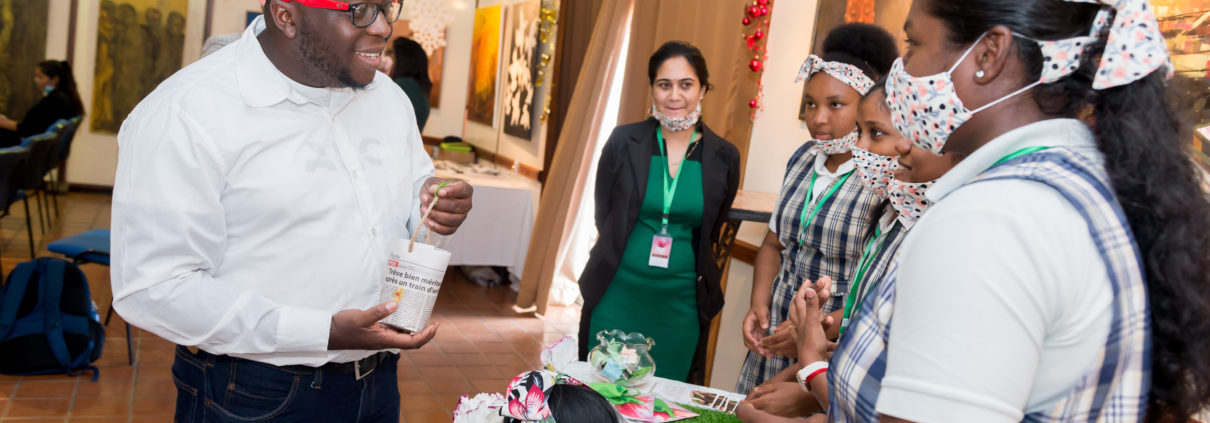Ernst & Young and Junior Achievement Worldwide release Gen Z Report
In late 2020, EY and JA collaborated to conduct a quantitative evaluation of nearly 6,000 young people, all current or previous JA participants, aged 16 to 25, with regards to their experiences in education and their views toward the future. JA Mascareignes alumni were among the contributors from Mauritius, which was among the 17 countries that were surveyed. The report has now been published and provides a great insight into Generation Z’s expectations from the educational system and, as the report states, could help to understand how to better prepare this generation for the World of Work.
Generation Z is defined as anyone born between 1997 and 2015. The overall findings show that this generation of young people are highly engaged and feel optimistic about the future. They want more hands-on experiential and real-life learning opportunities in topics such as Global Citizenship and the environment. They also strongly feel that their education should not be limited to the classroom. They are asking for educators to “offer innovative and creative learning opportunities that augment traditional teaching methods, and for businesses to support their development and education”. They, however express that they are less confident that the formal education is currently preparing them to be work ready, and this feeling increases among those who have already entered the workforce.
When it comes to the skills that they have and those on which they need to improve, the study identified the following: “Gen Z participants report feeling a high level of confidence in the 4Cs, with more than 75% of respondents stating they feel they know how to listen and work with others, solve problems, participate, voice their ideas and enjoy creative acts. The areas in which they felt least confident are related to resourcefulness and to improving upon what exists — suggesting that while they identify as a generation of original thinkers, they may struggle to integrate into the workforce or combine their ideas in meaningful ways once there”.
The respondents were less confident that formal education was fully aligned with the demands of the workplace. The report stating that “approximately 40% of Gen Z workers surveyed do not believe the subject focus or teaching methods in their education will successfully prepare them for life in 2030”. This perception is felt even more by some of the Gen Z who have entered the workplace. “Some in this cohort discovered they did not understand which job-ready skills employers value. In particular, they report feeling less prepared to think on their feet and solve problems.”
When asked about what they would want the education system to look like, many referred to some of the positives of the current disruption. “Around 75% of surveyed students stated that, when the pandemic concludes, they wish to continue virtual instruction in some form — indicating a strong preference for hybrid education”. They also strongly feel about having more “experiential opportunities” that engage the business community in terms of “real-life work” and “professional mentorship”. “More than 50% of Gen Z respondents expressed that they look to corporations and large businesses to prepare them for trends such as automation, globalization and new work norms (….) the more that corporations partner with educators, to provide hands-on work this generation craves, the more likely they are to see the value of the skills and experiences these contributors bring to the classroom”.
The report ends by emphasizing that there is no “one-size-fits-all” approach but that the current disruption in traditional schooling has allowed for creativity and experimentation in teaching. The same should be continued and include Gen Z and their preferences. “It would be a disservice to the next generation if we fail to consider how some of the positive aspects of the shift to virtual education can be carried forward once the pandemic has concluded. Now is the time for educators to re-imagine how blended time can be used and how technology can enable learning both inside and outside the classroom”.
The same can be said to encourage more involvement of businesses in education, “not only will collaborating with educators and working with students earlier on give businesses a window into this generation, it may also support recruitment and growth efforts while better equipping the next generation with the skills needed for jobs of the future”.



Leave a Reply
Want to join the discussion?Feel free to contribute!